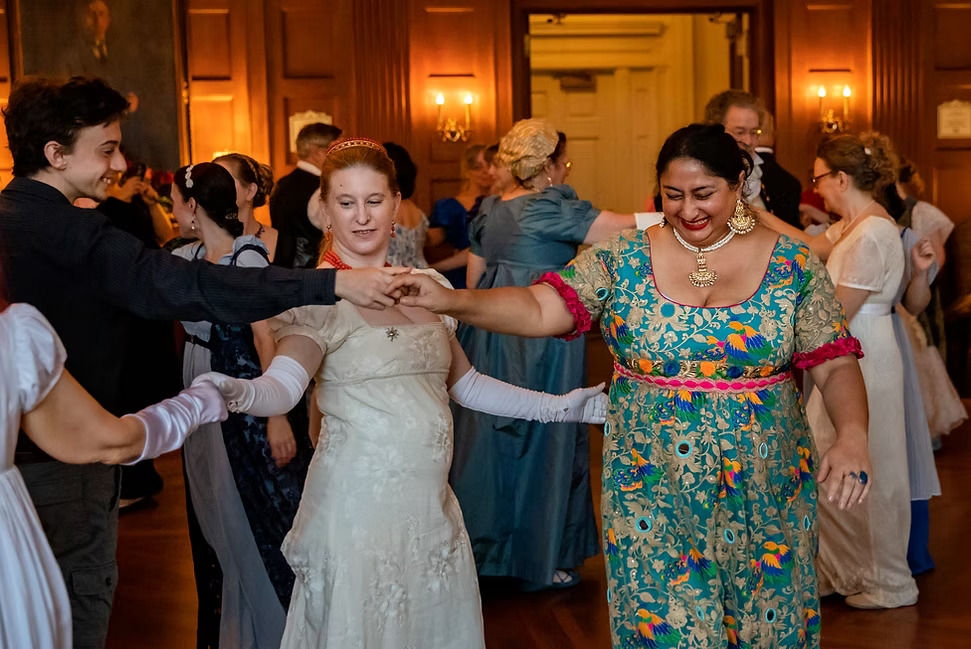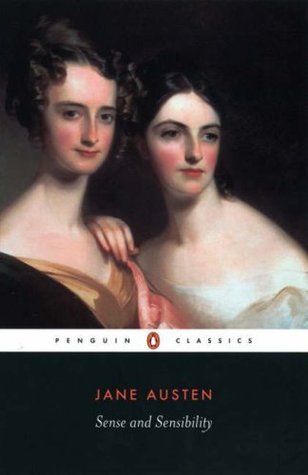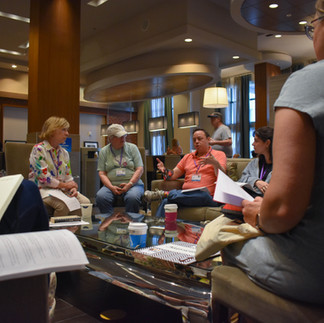JASP 2025: Interview with Heather King
- Delicia Johnson
- Jun 2, 2025
- 6 min read
Updated: Jun 4, 2025
In anticipation of JASP 2025 we’ll be interviewing our esteemed staff and speakers. This year’s four-day symposium, JASP 2025: Sensibility and Domesticity, will take place June 19-22, 2025, in historic New Bern, North Carolina. We'll be focusing on Austen’s first published novel, Sense and Sensibility, and considering the birth of her career as a published author and taking a transatlantic look at the world into which she was born. Program topics include medicine, birth, and domestic arts in Regency England and colonial North Carolina. We’ll be covering the aforementioned topics and celebrating Austen’s 250th birthday through a wide range of activities including workshops, small-group discussions, and workshops. And of course, our Regency Ball is an event not to be missed!

Our next interviewee is JASP 2025 Adaptations Panel chair, Heather King. Heather has worn many hats both inside and outside of JASP. She has been a professor at the University of Redlands, in Southern California, for 25 years, teaching a wide range of topics (including Austen in Adaptation!). She first attended JASP as a presenter. After presenting on the Adaptations panel in her second year, she took over organizing the panel, then served as PR committee chair for a year. Now she is Board Secretary for the Jane Austen Collaborative, the umbrella group that oversees JASP and other Jane Austen/Public Humanities projects that have grown out of that work.

Of all the things you’ve done in your tenure with JASP is there anything you’ve particularly enjoyed?
I love all of it. The more deeply I get involved I find that I love all of it. I initially thought it was just like any other academic conference but quickly found out it was so much more. As I’ve taken on more I’ve gotten such immense pleasure.

Which JASP activity are you most looking forward to?
The ball- I love dancing! I like the dances that we learn for the ball. The country dances have such a feel of community. It’s a good way to celebrate the relationships you’re building with attendees over the weekend.

Can you talk about the Adaptations panel and why it's such an important part of the symposium?
The Adaptations panel is a way to think about what we call Jane Austen’s afterlives across a bunch of different media and across different historical and national traditions. I think it’s important for a couple of reasons. I think we should continue to look at how Austen is being made to speak in different contexts. How does she get updated? Are there parts we have to let go? Are there parts that can be dressed in new clothes for a new time period? And how can different communities interact with Austen? And I think it’s also important because a lot of our younger participants might first encounter Austen through adaptation. So I don’t think we can ignore the adaptations. I think they’re part of how Austen continues to draw a new audience in new times and new places.
I’ve been particularly grateful to facilitate the Adaptations panel because I teach a course on Jane Austen in adaptation. So it’s awesome to have another context in which to think about that topic.
Two of our three panelists will be talking about film in really engaging materialist history ways. Lena Yasutake will be talking about costuming in multiple film adaptations, and Megan Poff will be looking at the score for Ang Lee’s adaptation of Sense and Sensibility. Michelle Taylor will be talking about an Instagram Choose Your Own Adventure Sense and Sensibility and what audience choices show us about how the novel and characters are and also how young readers today are responding to the novel, characters, and moral choices of the book.
Why do you think people should read Sense and Sensibility?
I think Sense and Sensibility is a really important philosophical engagement with one of the most influential moral philosophies of the late 18th century, namely Adam Smith’s Theory of Moral Sentiments (1759), which was an important exploration of what it means to be a moral person and to live a good life and the choices that are necessary for that. I think Elinor in particular is Austen’s thought experiment of what a life would look like if you took Adam Smith seriously. It’s a great love story of course- or two great love stories for the price of one- but I think the relationship between the sisters and the question of women’s self-governance in the novel is a central component that is probably more important than the love stories in the end. That’s a super nerdy answer, I know.
Do you have any favorite or least favorite characters?
I am thoroughly Team Elinor, and I think when people read the novel and think that Elinor is cold that they need to go back and reread it. I don’t think Austen wants us to think of Elinor as cold. She is described as having a sensibility as active as her mother and sister, but she is also very sensible. She is both sensitive and sensible, because sensibility is such a complex word in the 18th century. Elinor can both feel and think, and think about others. I really admire her character for her feelings and her rational restraint.
Film stills from Sense and Sensibility (1995)
I know Fanny is always held up as the huge villain, but let’s be real. It’s Lucy Steele who’s the real bad guy. Although I have to acknowledge that she’s doing what she needs to do to survive. So I guess in a way Fanny is worse because she is well-off. But Lucy Steele is a snake because she’s able to read Elinor and exploit Elinor’s strengths against her. That’s what makes her so awful. In a different life Lucy Steele could’ve been a much better woman and Elinor realizes that, which makes her a figure of pathos because she has abilities. She just has not been in a situation where she can develop them. So she’s wasted potential.

What do you think of the romantic pairings in the novel?
I feel like Elinor probably deserved a bit better, but she’s happy with him so I’m not going to judge. And Colonel Brandon and Marianne. . .the age difference would not have been as startling when Austen was writing, of course, but it’s still noticeable. But after subsequent readings I like that Marianne ends up with him because it means he finally gets the happy ending he’s been denied earlier. To be finally rewarded after all his suffering with someone like the first woman he loved is nice.

What do you love about Jane Austen and her works?
I love the way she challenges us to think about the choices that we make with our lives and, against all odds, assigns a fair amount of moral autonomy to women in a time period where they didn’t have a lot of social agency. So whether it’s Elizabeth or Fanny or Emma and definitely Elinor and Marianne women have choices to make about their own morality and how they’re going to live that. I think that’s enormously empowering for modern readers as well as readers in the early 19th century. Plus the satire is so wonderful. No one can snark like Jane Austen. So the social commentary is delicious. The prose itself is beautiful.

Why should people attend JASP?
For all the immersive public humanities programming. It’s not quite like getting to go to Austenland, but it’s the closest you’re going to get outside of a novel in some ways. I really love how hands-on everything is through workshops where you can try embroidery or learn how to tie a turban or learn the dance steps. It’s fun to go to the ball, but I think it’s also important to understand when you’re reading the novel what the dances Austen’s describing really are because they’re so different from the way we think of dancing and public interactions between men and women today. You can’t get a sense of the mores until you physically do it. It deepens your understanding of the novel, but it’s also such a wonderful community to join because it’s a pretty seamless blending of fans, scholars, and creators. Everybody has a different and important perspective to bring to the discussion and we all learn from each other. I find it tremendously enriching every time I go.
Your donations support all of our programming for the annual Jane Austen Summer Program and Jane Austen & Co. They also help with our community efforts, including student writing contests and continuing education for high school teachers, through scholarships to JASP and our new initiative JASP+. Contributing to this fund will help us keep our costs and the ticket prices as low as possible. It will also help ensure that JASP continues to exist in future years.

























Comments